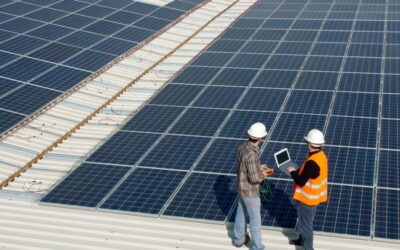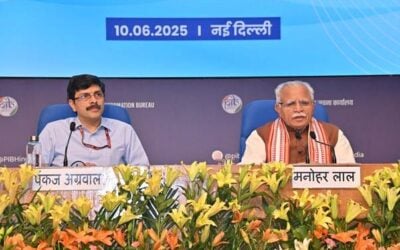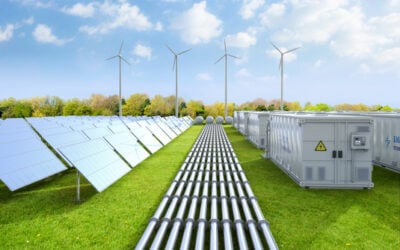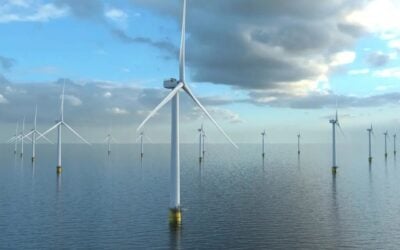Putting value on energy storage in the UK capacity markets could help pay for deploying the technology more widely, according to the country’s secretary of state for energy and climate change.
In response to a question on whether the UK had considered opening a subsidy programme for storage, Ed Davey of the Liberal Democrat party, the junior partner in the UK’s coalition government, also said that the government’s role in storage is “a big investment in research and development (R&D) innovation”.
Enjoy 12 months of exclusive analysis
- Regular insight and analysis of the industry’s biggest developments
- In-depth interviews with the industry’s leading figures
- Annual digital subscription to the PV Tech Power journal
- Discounts on Solar Media’s portfolio of events, in-person and virtual
PV Tech Storage spoke to Davey as the minister visited the UK offices of China-headquartered solar module manufacturer ReneSola, to launch a community energy initiative. Davey was bullish on the potential for energy storage, especially when paired with solar power. He said however that the high level of capital required to “crack” the challenge of integrating renewables and protecting the grid made it a global issue.
“To me…the tie-up between solar and storage is one of the most significant things we can do,” he said.
“We’ve done some [work] on storage, I’d like to do more, but it needs global capital to get behind it, there’s very many [technologies], there won’t be only one version but if we do that then we crack it.”
According to UK secretary of state for climate change and energy Ed Davey, transition to a low carbon future will result in a "massive amount of energy storage". Image: Monique Avila.
When asked if the UK was likely to see a subsidy or support programme for storage introduced, perhaps along the lines of those in place in Germany or Japan, Davey did not answer directly but instead pointed out what has already happened at the top level and what could be done in future to make storage pay. He also said that a lot of the questions of categorisation and market segmentation still need to be resolved, to make it more straightforward for governments and regulators to determine the value of storage.
“It’s a very big question. First of all the major thing we’re doing is supporting R&D in storage because we’re not there yet. It’s not like there’s a storage technology out here that if only we bothered to look at it, we’d solve it. It’s not there yet. There will probably be more than one storage technology for different types of environments and situations, so I think the government’s role in storage is a big investment in R&D innovation.
“But as we plan our policies going forward, and I’m particularly focused on the capacity market, we’re looking at storage being able to play into the capacity market, so there will be market incentives as well.”
Davey said heat, transport and power networks across the world would have to undergo “dramatic change” for reasons that include reduction of carbon emissions targets.
“We need to get over the fact that we built our economies and societies in the modern world over the last two-and-a-half centuries on fossil fuels and we know that in the next two or three decades, we’ve got to change that and that’s radical.
“It’s all about transport systems, heating systems and power systems, and it’s a dramatic change – dramatic change – and the amount of low carbon energy we’re going to need is just almost unimaginable.”
According to Davey, solar would be a big part of that transition and energy storage is, in his opinion, the single most important complementary technology to help those managing grids and energy policy to adapt. In his view it would be impossible to expect this transition to go smoothly, he said, but he felt it was vital to do nonetheless, not least of all for the wider implications for humankind.
“This dramatic transition that we’re making is not going to go smoothly, it’s not going to happen quickly, but what has to happen, what’s going to happen, we are going to see a massive amount of energy storage. It will happen, I could not be more convinced of this, so therefore I would urge people to keep the faith,” Davey said.
“Look at the progress we’ve made. It’s extraordinary. I personally think the reduction of costs of solar, what’s happened already, what’s going to happen, is one of the most significant steps in human history, I think we’re going to see solar power being one of the things that will have the biggest impact on reducing poverty in some of the poorest countries in the world than almost anything else.”






